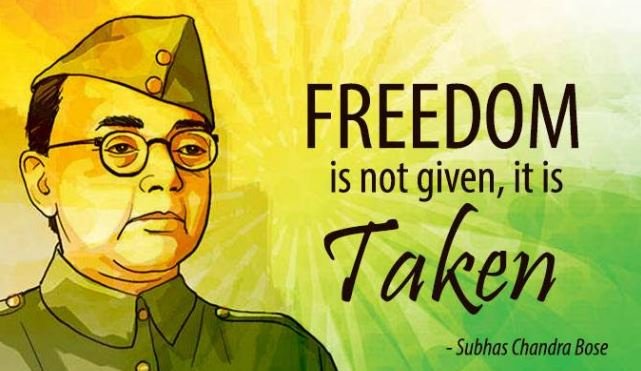Subhash Chandra Bose, a revolutionary leader born on January 23, 1897, in Cuttack, Odisha, played a distinctive role in India's tumultuous journey towards freedom. A man of exceptional charisma and determination, he earned the moniker "Netaji," a title reflecting the deep respect and admiration he garnered among his followers. Bose's early years were marked by a brilliant academic career, culminating in his participation in the Indian Civil Service. However, the call for India's independence proved stronger, leading him to resign from his service and join the non-cooperation movement under Mahatma Gandhi in the early 1920s. Over time, differences in ideologies between Bose and Gandhi emerged, leading to Netaji's resignation from the presidency of the Indian National Congress in 1939. Undeterred by setbacks, Bose set out on an extraordinary journey to seek international support for India's cause during World War II. His collaboration with Axis powers aimed at securing assistance for the formation of the Indian National Army (INA), a military force that would fight alongside the Axis powers against British colonial rule. Bose's famous rallying cry, "Give me blood, and I will give you freedom," encapsulates his resolute commitment to the cause of Indian independence. The INA, under his leadership, played a pivotal role in battles like the Siege of Imphal and the Battle of Kohima, showcasing remarkable military strategy and resilience. Tragically, Netaji's life was cut short in a plane crash in 1945, under disputed circumstances. The mystery surrounding his death has fueled speculations and conspiracy theories, adding layers to the enigma that surrounds this iconic leader. Subhash Chandra Bose's legacy transcends political differences, embodying the spirit of sacrifice and nationalism. Despite disagreements with other leaders, his contribution to India's struggle for independence remains indelible. His vision extended beyond the immediate goal of liberating India; Bose envisioned a socio-economic and political framework that would ensure justice and equality for all citizens. The Azad Hind Radio, founded by Bose, broadcasted his vision for a free India. His influence reached far beyond national boundaries, inspiring not only Indians but also people across Asia and beyond. The INA trials after the war added momentum to the already growing demand for India's independence. In conclusion, Subhash Chandra Bose's life is a tapestry of courage, determination, and a relentless pursuit of freedom. His legacy lives on in the hearts of those who continue to draw inspiration from his unwavering commitment to the cause of a free and sovereign India. Despite the passage of time, Netaji remains an enduring symbol of resilience and the indomitable spirit of those who dare to dream of a brighter, independent future.

